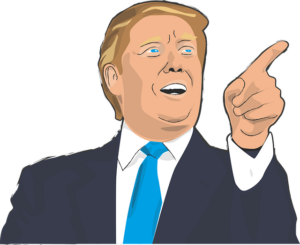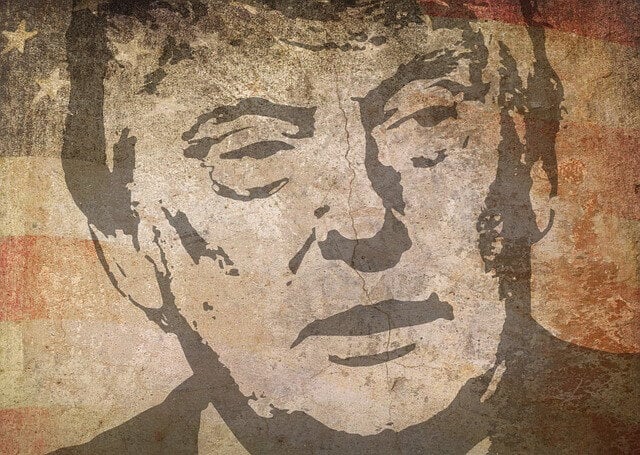
When the question was put forward to the Governor of Guanajuato at the Mexico Automotive Summit in September 2016 about the potential impact of a Trump presidency, numerous chuckles filled the room. Even though Mr Trump had defeated the odds by winning the primaries, it was still inconceivable to think of the real estate magnate making the oval office his own. However, the laughter disguised a more awkward problem: what can you expect from a man who is more famous for hosting Miss Universe contests than for his foreign policy views? The Governor’s answer was predictably bereft of incisive information.
USA Presidential Election
At the time of writing and one week from the president elect’s inauguration speech, this sense of uncertainty about the president elect and his policies has only grown stronger in Mexico. The coverage of Mr Trump in the press has remained ubiquitous and spans a wide range of subjects, from campaign pledges and policies being dismissed, to lurid scandals and blackmail involving the president elect himself. Substantiated claims backed by the US intelligence services of the Kremlin’s involvement in the manipulation of misinformation to give Mr Trump the edge over his bitter rival Hillary Clinton has added a surreal element to the Trump saga, and has provided the West with a stark reminder that political stability, even in a country of the stature of the US, can be undermined.
Changes to the Economic and Political Landscape

Just as easily as the Kremlin meddled in the US elections, so can the president elect destabilise Mexico’s political landscape. The State Department provides substantial logistical support and intelligence to the Mexican Government in the war against drugs, in which various corrupt senior Mexican political figures are involved. Were Trump’s administration to disseminate the information it holds on these people, it could prove to be final nail in the coffin for the much maligned President Peña Nieto, whose mandate has been marred in scandal, and whose ratings are at an all-time low. In the worst case scenario, and with elections coming up in 2018 in Mexico, the balance would tip in favour of Manuel Lopez Obrador, a populist left-wing presidential hopeful who has vowed to undo all the vital reforms Peña Nieto implemented early in his tenure for education, telecoms and the energy sector, and impose damaging protectionist policies that could require Mexico years to recover from.
President elect Trump held his first press conference since June last year in the first week of January, where the issue of the wall came up again. This topic has been one of only a handful of consistent policies in an otherwise vague and substance-free campaign. And as the Economist points out, he could make this happen by blocking remittances sent from Mexicans in the US to Mexico, which represent roughly USD$25bn per year in transactions. The Mexican economy would certainly feel the pinch were this cash injection to be blocked in the future.
Whether Trump will be able to see out his mandate is up to debate. Should suggestions that the Kremlin is blackmailing Trump take substance, or conflicts of interest arise as a result of his business owing billions of dollars to Deutsche Bank, an impeachment is not improbable. However, in the short term, any presidential change would only add to the current volatility of the peso which has dropped to a record low against the US dollar, and whoever were to succeed Trump is not guaranteed to grant Mexico any favours.
Mexican Automotive Industry
Much has been said about Ford’s U-turn on its pledge to invest USD $1.6bn in a new plant in Mexico – at the time, Trump had labelled the company “a disgrace”- and the company’s subsequent announcement to invest in an existing plant in Michigan. The president elect was quick to seize this example as a triumph of his protectionist rhetoric. Trump’s influence and arm-bending are real enough, but one should not read too much into Ford’s decision. The reality is that flagging sales in the US of their compact cars dictated Ford’s decision to cancel its investment in San Luis Potosí. The subsequent investment made domestically had already been earmarked the previous year for an unrelated project. But the move does underline the growing interdependence of the two countries. According to the Economist, 40% of the value of Mexican exports consists of inputs from the US. However, any recession in Mexico caused by a trade war with the US will have little effect on Mexico’s northern neighbour’s overall economy.
Amid all this chaos and uncertainty, the US’s allies and trading partners are hoping for the best and expecting the worst. Due to its strategic location and trade agreements (such as NAFTA, which Trump has threatened to dismantle), Mexico’s situation is of course more precarious than any of its contemporaries. Inflation has started to show its nose in response to a free falling peso, and the country’s sharp rise in public debt is in urgent need of attention. As a result, economic forecasts for GDP growth have been lowered.
Ripple effect of Trump Policies

However, it is not all gloom and doom for the land of tequila and tortillas. If Trump enters a trade war with Mexico, it will cause huge ripple effects in specific industries in America’s own backyard, such as with US maize farmers whose states represent a large chunk of the Trump vote and depend heavily on the export of their products to Mexico. The pro-trade lobbyists may persuade Trump to embark on a softer version of protectionism.(or Trumpism)
Trump’s appointment of Rex tillerson as Secretary of State could be a silver lining for the energy sector in Mexico following its reforms, as the untapped deep water resources in the Gulf of Mexico represent a potentially lucrative prospect for US companies, if the right incentives are put into place.
Current Competitive Advantages
Mexico’s alignment with Western culture and its proximity with the US has helped persuade international companies to favour the country as a reliable location for production and manufacturing activities. Companies and individuals looking at foreign direct investment in Mexico are drawn by the fact that the nation has a large pool of human talent covering a wide range of services, industries at all levels of skill set amongst other competitive advantages. Foreign investors are attracted by reduced manufacturing costs, high quality work and lower payroll burden relative to Europe or even China. Peña Nieto’s team therefore has strong arguments to persuade other countries to sign free trade agreements, which would considerably soften the blow of any changes to, or cancelation of, the current NAFTA agreement.
Some Mexican economists have pointed to the fact that when NAFTA was ratified, the understanding was that over time Mexico’s purchasing power would equal that of the US. This has not been the case. The vast majority of Mexican exports head to the US, whereas for the US trade with Mexico represents a drop in the ocean. This is not to say that American companies do not benefit from the agreement; the car manufacturing industry is a testament to that. However, if the terms of NAFTA are revised in any way, it will push Mexico to focus on strengthening its own ailing economy. One of the key ways of redressing the balance would be to tackle the parallel economy, where the majority of Mexicans hold informal and unproductive jobs. Channelling more people into the formal economy will not only create a larger middle class society that can afford more goods imported from the US (thus holding their end of the NAFTA bargain), but it will also allow the government to collect more taxes that can be spent on infrastructure and education.
A Sense of Optimism for the Future of Mexico
There is no doubt that Trump’s victory has shaken Mexico to the core, and Mexicans know that they will not be receiving any favours from their neighbours. This has led to calls for local consumption and a focus on domestic trade to boost the economy. Despite the peso devaluation, the business atmosphere in general is upbeat, and a new found resilience from the fact that the country can build bridges with many other trading partners thanks to the competitive platform for manufacturing and services it offers will ensure that Mexico’s success story will be less and less dependent on its bullying neighbour. To quote Carlos Slim, “I would be more worried if I were American”.
Biz Latin Hub can help you register a business in Mexico
At Biz Latin Hub, our experienced multilingual team of company formation specialists can help you register a business in Mexico to explore business opportunities in the country. With our full suite of back-office services, including legal, accounting, recruitment, due diligence, and commercial representation, we are equipped to be your single point of contact for setting up a business in Mexico, or any of the 17 other countries in Latin America and the Caribbean where we are present.
Reach out to us now to discuss how we can help your business flourish.
Or read about our team of expert authors.





